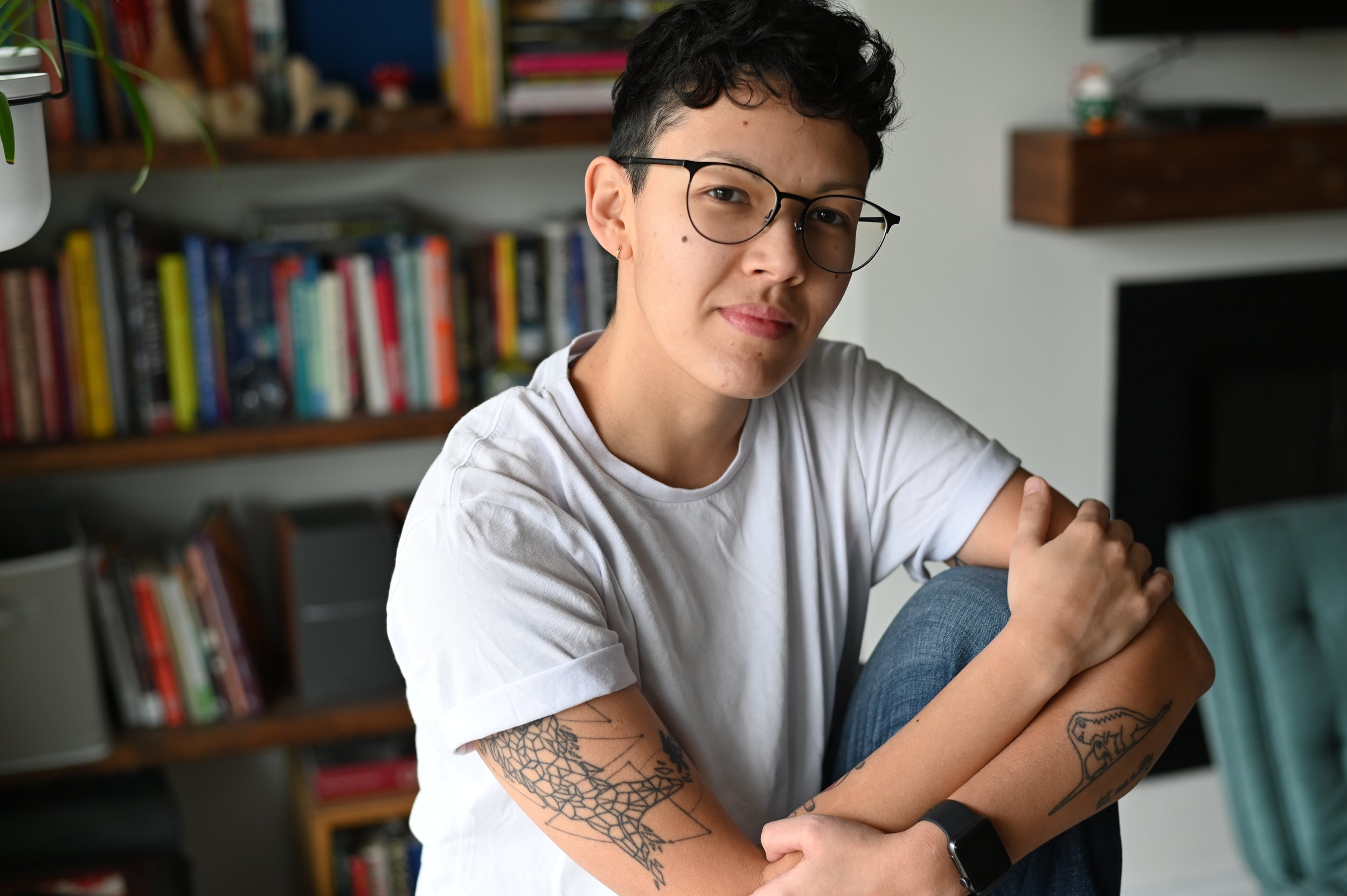From issue 2.10 December 2023 of Girls to the Front!
A mini-review and “Why I Wrote This” for Emi Sasagawa’s Atomweight
In the beginning of Atomweight, we meet Aki—the “perfect” daughter who abides by all of her teachers’ and parents’ expectations. She’s on her way to the London School of Economics, a decision seemingly taken to please her parents. We soon learn that she’s decided to go away to school so that she could gain the distance from her parents she needed in order to be “the protagonist [in her life] and not just a supporting character in someone else’s story.” Once at school in London, Aki starts growing into her own skin. This includes exploring her as of yet unrequited desire for women—something her parents definitely do not approve of. Over Christmas break, Aki’s The L-Word collection is discovered by her family, which leads to a breakdown in her relationship with them. Back in London, she gets into a bar fight with a man who was harassing her and finds that, “for the first time that day, [she] felt in control. [Her] problems felt manageable, smaller.” And thus begins Aki’s new life, doing martial arts training on her own, skulking neighbourhoods where nobody she knows will be, looking for toxic men to beat up and for women to have casual sex with: “Sex, like fighting, was a tool to cope with the chaos around me. It was about power and about all the things I could still control.” This is a compelling and empowering story that explores the pressures that mixed-race women often find themselves under, being “conditioned to compartmentalize,” and how one woman found her way out of it. By the end, Aki finds a way to what she thought was an impossible task: being both strong and vulnerable.
Why I Wrote Atomweight
by Emi Sasagawa
Atomweight began as a short story, and it grew from there. As someone who grew up mixed, moving from country to country every few years, my identity had always felt relative to the people surrounding me. It wasn’t until I moved to the UK for undergrad that I began to rethink what it meant to take up space as me. I wanted to explore that journey we all go through as teenagers and young adults, but especially as individuals occupying queer, mixed, racialized bodies.
Growing up, I remember feeling a lot of anger, and there was never a safe place to explore that in either culture I was raised in, especially being a girl. Anger can be a powerful vessel of discovery. In Atomweight, I wanted to take this anger to an extreme and explore the fracturing and rebuilding of the self through a violence that was physical and tangible.
I had never written anything that would come close in length to Atomweight. I quickly learned you have to be patient with yourself and the work. You have to allow the story to grow with and beyond you, and you can’t do that unless you dedicate time to a project. What was liberating to realize is that, at the end of the day, a book is a collection of chapters, which are a collection of paragraphs, and which are a collection of sentences, and so on.
What drew me to fiction is that, as a genre, it allows us to distill complex truths. If done well, a novel can make places and people that have felt distant and alien, accessible and relatable. Most of all, fiction can be a safe place from which to explore and stretch real and imagined worlds. This book is meant as an invitation for readers to reflect on their intersectional identity—through privilege and power, and oppression and marginalization—and reimagine how they may take up space and hold space for others.
Emi Sasagawa is a settler, immigrant and queer woman of colour, living and writing on the traditional, ancestral, and stolen territories of the xʷməθkʷəy̓əm, Sḵwx̱wú7mesh and Selilwitulh Nations. Her debut novel Atomweight (Tidewater Press, 2023) tells the story of Aki, a good girl, good student, good daughter from a loving but demanding multiracial family, who, after being triggered by a violent incident, begins picking fights with random strangers. This is a story about mixedness, queerness, and power—about reflecting on oppression and privilege, and the ways we take up space in the world. Emi is a graduate of TWS at Simon Fraser University, and is currently completing an MFA in Creative Writing at the University of British Columbia.


